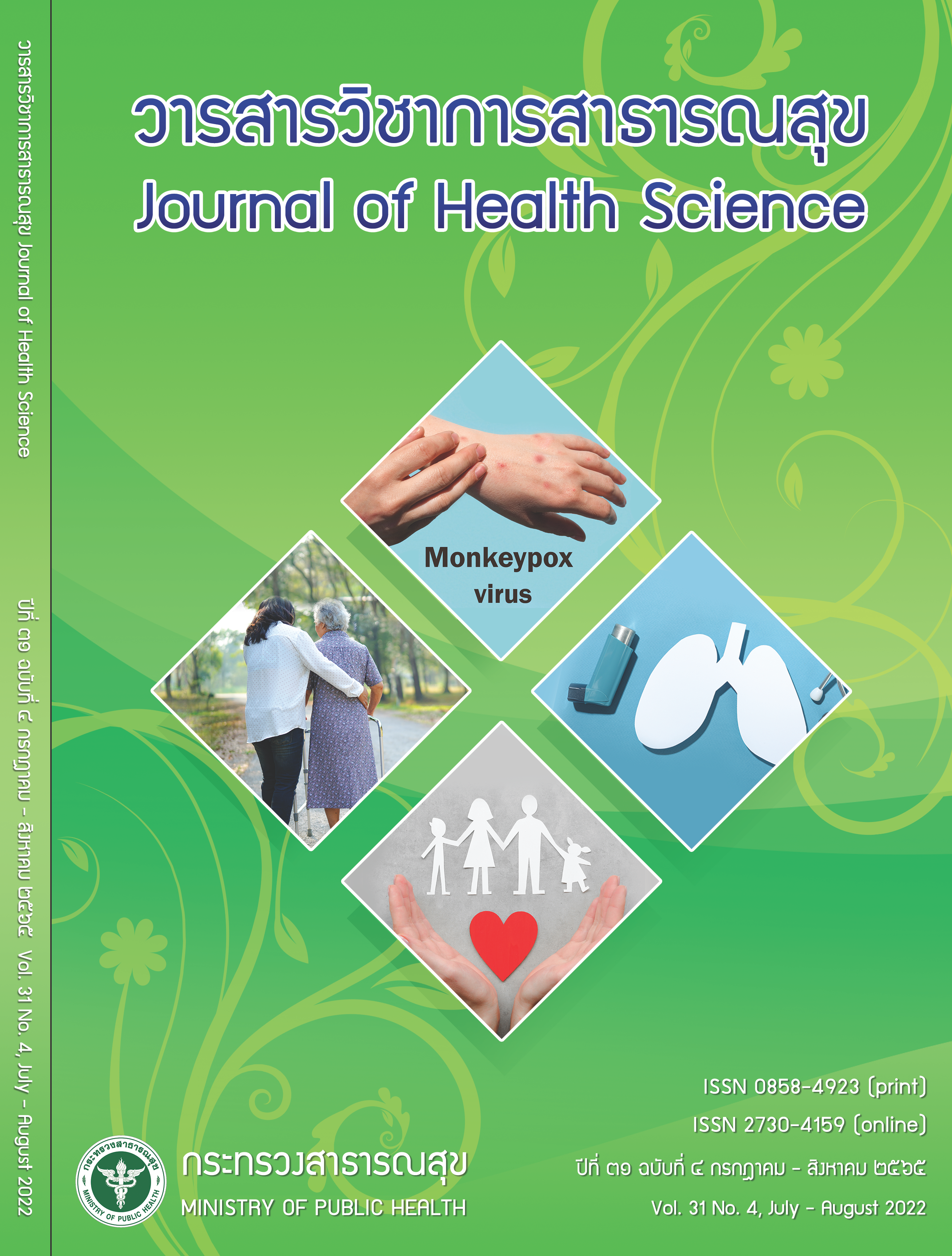Evaluation of International Cooperation Strategy for Disease Prevention and Control Department of Disease Control B.E. 2560–2564 (A.D. 2017-2021)
Keywords:
evaluation, international cooperation strategy, disease controlAbstract
Department of Disease Control, Ministry of Public Health, Thailand, has used the International Cooperation Strategy for Disease Prevention and Control, Phase 1 (2017-2021) as an operational framework. This study was conducted to assess the implementation of the strategy and the information obtained from the study was used for developing the strategy of the Phase 2. The assessment tool covered all strategies. The assessment data were collected from (1) personnel working in border provinces who were randomly sampled to provide input through direct interviews, and (2) personnel working at the national DDC office through online self-assessments. The results of the assessment included the following key findings. For the Strategy 1: Developing the capacity of DDC officers and networks responsible for international cooperation, there was integration across many sectors, and there were workers at every border that could speak local languages. Ongoing development of personnel was mainly aimed at developing epidemiologists and international prevention and control specialists. On the Strategy 2: Developing the administrative system, innovation and technology, it was found that information systems for international cooperation had been put into practice at the regional level, while a multi-lingual knowledge pack and technology was created at the national level to support the operations. For the Strategy 3: Developing Thailand’s role of leading international platforms and driving international policy, regulation, conventions and agreements, the officials had participated in bilateral, multilateral and international meetings and had pushed for policy implementation, international agreements, and memorandums of understanding as tools to drive international agreements. In the Strategy 4: Developing international cooperation networks, a directory of networks had been developed both formally and informally. When analyzed the overall operation in the form of scoring, there was no statistically significant differences between the national and regional levels. The common opinions obtained from the study included: (1) training personnel in essential skills, (2) establishment of regional level international cooperation, as well as increasing the number of responsible officers, (3) exchanging the programs related to international cooperation and the national level was recommended to integrate the said programs, (4) designate a primary international coordinator at the provincial level and update the network contact list annually, and (5) executives from the related ministries should recognize the importance and provide support the operation.
Downloads
Downloads
Published
How to Cite
Issue
Section
License

This work is licensed under a Creative Commons Attribution-NonCommercial-NoDerivatives 4.0 International License.







